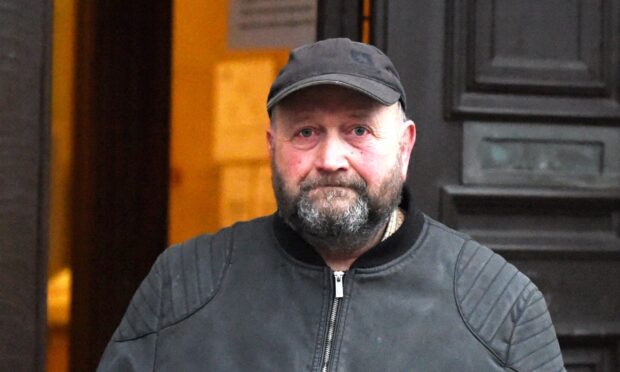A decision to allow three Aberdeen University students to avoid punishment and walk free from court despite viciously attacking two men they put in hospital has been branded a “disgrace”.
Mohammad Hassan, 22, Luke Dragic, 21, and Paul Elliott, 21, admitted assaulting the clubbers outside ATIK nightclub on Bridge Place in Aberdeen on January 18 2020.
But they were caught on camera celebrating after Sheriff Edward Gilroy handed the trio an absolute discharge, which means they weren’t punished for their crimes or given criminal records.
Last Friday, Sheriff Gilroy said it would be “inexpedient to inflict punishment” because it would have a “disproportionate impact” on the students’ lives and future careers.
But his judgment has sparked public outrage, prompting hundreds of people to comment on social media, with some of them calling for it to be appealed.
‘Mockery of the justice system’
Edward Millband posted on Facebook: “Surely it’s in the public interest to ensure that those who commit violent acts are deterred from doing so in the future.”
Karen Stephen commented that the outcome “doesn’t exactly send a good message to the victims of crime” and Sam Jones suggested it “makes a mockery of the whole justice system”.
Others expressed sympathy for public services and explained that the case’s conclusion was “very demoralising for the police and a waste of NHS time and money”.
Magnus Slater added: “The public has been let down and these guys will think they are untouchable.”
Dragic and Hassan, both of Tailor Place, Aberdeen, and Elliot, of North Fort Street, Edinburgh, pleaded guilty to one charge of assault on one man, while Elliot and Hassan also pleaded guilty to a second charge of assault on another.
An argument spiralled out of control when Hassan initiated a physical altercation by pushing one of the men.
He repeatedly punched the head of one of the victims, while Dragic also punched the man’s head and body.
Elliott pushed the second victim to the ground where he struck his head on the kerb, and also punched the first victim on the head.
Career-ending criminal records
During proceedings, the lawyer representing law student Mohammad Hassan told the court that a criminal record would have barred his client from becoming a solicitor.
The argument weighed heavily with Sheriff Gilroy’s considerations before he chose the disposal without punishment.
Hassan was later seen bounding out of the court building and punching the air.
But commenting on Facebook, Richard Colvin said: “So, if you’re a student, you can assault people and get off with it? That’s not right.
‘Inappropriate’ celebration
“These three behaved outside court in an entirely triumphant and inappropriate way, completely at odds with their defence lawyers describing them in court as being remorseful.”
And Agnes Mackenzie added: “If you commit a crime, you should be punished. It shouldn’t matter who you are or what your career is going to be.”
The Crown Office and Procurator Fiscal Service (COPFS) could not confirm whether it would appeal the absolute discharge, although the authority does have the right to do so.
Unduly lenient
A COPFS spokesperson told The Press and Journal: “In all cases the Crown considers the decision of the court, taking into account the test for when the disposal can be assessed as unduly lenient.”
For the Crown to successfully appeal against the absolute discharge it must prove that it was not within the range of disposals that Sheriff Gilroy could have reasonably imposed after considering the facts of the case.
The University of Aberdeen was contacted for comment on the behaviour of its students.
It said: “The university is unable to disclose the details of disciplinary matters relating to individual students.”
For all the latest court cases in Aberdeen and the latest crime and breaking incidents, join our new Facebook group.













